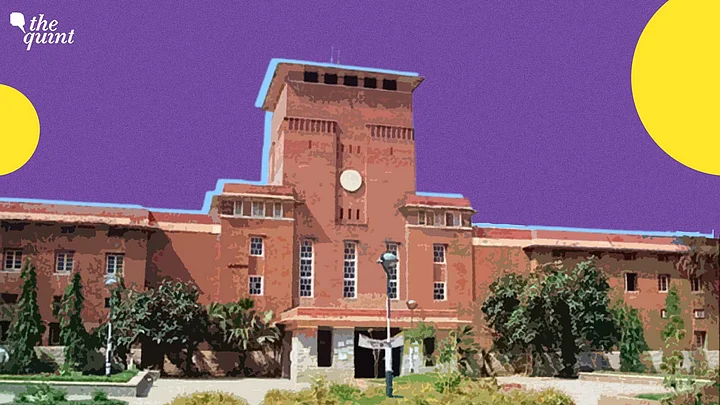Adhocism has crept deep in the veins of Delhi University over the decades. The adhocism in universities and colleges somehow managed to temporarily rescue the institutions by ensuring faculty at the cost of those who are serving as ad hoc teachers over the years. The recent progress in permanent appointment in various Delhi University colleges is indeed a relief for hundreds of the eligible and meritorious candidates.
Perpetuating adhocism as a practice in universities is against the fundamental principles of fairness. People working as ad hoc is a demeaning process as equal work is worthy of unequal treatment in a workplace. There is absolutely no job security.
Experiencing Adhocism
Equality of treatment and conditions in a workplace like equal pay, parity in increments and most importantly equal opportunity to undertake research work and fellowships without affecting job and career prospects, is indispensable in the academic life of a teacher. Adding insult to injury, there is no sanctioned leave for ad-hoc to attend seminars or conferences. Apart from few sanctioned casual leaves, earned leaves, and medical leaves, which expire every four months even if not used, there is no leave for attending FDP or Faculty orientation programmes.
Adhoc faculties are not the beneficiaries of any earned leave for the work they do on vacation, unlike permanent teachers. Frankly speaking, ad hoc faculties are not privy to above equality of conditions at par with permanent faculty at the workplace. In this context, perpetuating adhocism is akin to snatching basic human dignity from those working in the university. Ad hoc faculties unceasingly remain in dilemmas of job security and career influx due to spontaneous nature of ad hoc jobs. The teaching contract is fraught with uncertainty, valid only for four months, subject to renewal. A lethargy and informality of erstwhile consecutive leadership in the university immensely contributed to the culture of adhocism.
It is in this context a logical conclusion to fill all the vacant posts are the need of the hour. Delhi University has languished for decades due to adhocism. In fact, the teaching community became synonymous with ad-hoc in the university. Sadly enough, paraphernalia of politics germinated around the ad-hoc and the adhocism in the university. An array of unsustained, unsubstantiated and legally ambivalent promises were made for decades to the ad-hoc community in favour of votes for the teachers’ association.
An informality developed in the professional workplace where the ad-hoc became an exemplar of performing not only their duty, classes and exam duties, but those of others as well, of course, to remain in the good books of those influential in the respective colleges in search of job security, and contract renewal. The fear of joblessness became an opportunity for some to exploit the ad hoc’s vulnerability. Therefore, only permanent appointments are the way out to eradicate all these malaise without further exacerbating the adhocism that mushroomed in the university.
Apart from being a systemic malaise, adhocism is also an ethical problem woven around the cobwebs of uncertainty and perpetual insecurity leading to stress and reducing a vibrant academic job to a mode of merely surviving and sustaining a family. Therefore, this ceaseless cycle must be brought to an end. Other concerns regarding ad hoc teachers are actually peripheral to the everlasting saga of uncertainty and exasperation.
Permanent Appointment Must Continue
The failure to fill the vacant posts with permanent positions for decades was certainly an institutional failure of the university. The only feasible proposition can be permanent appointment where everyone eligible must get equality of opportunity and fair chances to appear for public employment.
Often the individuals are the collateral when the system fails. Adhocism is one such failure making the most educated of the demography susceptible to job insecurity. So when the leadership has decided for permanent recruitment, it must continue by ensuring equality of opportunity. To demand any compensatory rights for the ad hoc teachers must not be at the cost of denying or compromising with the equality of opportunity for all the eligible candidates.
The current appointment drive will be effective if it is followed by instituting another mechanism or provision to carry on such recruitment drives on a regular interval in a decentralised manner at the college level. This would not only stop the adhocism, but other alternatives of adhocism such as contracting or guest appointments where the situation is much worse.
Therefore, a rule or provision must be developed so that the moment there is vacancy in a college, permanent recruitment must be undertaken without any hindrance. Otherwise, in a couple of years, the spectre of adhocism, contractualism or guest appointment will be back to haunt the university spaces, repeating the same nightmares.
Permanent recruitment is the alternative to adhocism or guest appointments. The determination to undertake the permanent recruitment drive must be encouraged and safeguarded from the vested interests of those who want to derail this process without an iota of concern for those who face humiliation on a daily basis.
(Dr Rupak Kumar teaches at Shaheed Bhagat Singh College and Anant Prakash teaches at Kirori Mal College, University of Delhi. This is an opinion piece and the views expressed are the authors' own. The Quint neither endorses nor is responsible for them.)
(At The Quint, we question everything. Play an active role in shaping our journalism by becoming a member today.)
